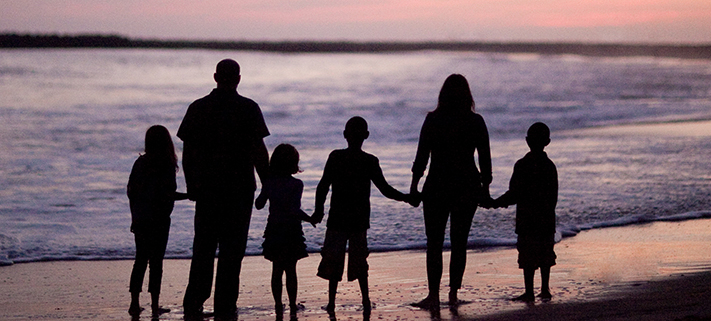Parenting is a tough job! It looks easy from afar, but not so much when you have to make the decisions and solve the problems in real life.
Imagine being a parent long distance. You have very limited and irregular contact with your children, who are being raised by someone else. Because of your separation, your kids view you with suspicion or anger, or doubt your love for them. You live with regrets and guilt and bouts of depression, all complicated by legal difficulties.
Very excellent book . . . You covered all the bases and in the gray areas you gave it to God. This study brought tears to my eyes.
Thomas, inmate
This could, in part, describe a military family with a parent on deployment, or a family broken by divorce. But only a parent who is incarcerated faces all the above challenges.
WELS Prison Ministry has added a new booklet, Parenting from Prison, to the 23 other titles in its Level 1 Self-Study series. Inmates can request a Bible study, complete a final test, return it for correction, and then request another topic.
Parenting from Prison revisits the root of the problem: the first sin by our first parents. That transgression separated them from their Heavenly Father, leaving them in a prison of pain and regret for having ruined the relationship. But God was determined to restore the father-child trust, which he achieved by sending his only Son.
Incarcerated parents are directed throughout the volume to focus on Jesus and his grace. They are also advised to be honest about their feelings; to be realistic about the challenges; to address their stress by talking with others; and to be patient, trusting God to accomplish what they cannot.
Practical, common-sense, straight forward approach. Teaches how to overcome obstacles of separation, and build a solid plan for the future. Doesn’t belittle or talk down to prisoners, but helps recognize past mistakes, discourage self-doubt, and foster relationships of growth in faith, love, understanding and forgiveness. Thank you for loving me with the truth!
Kelly, inmate
Simple suggestions are offered for communicating with children, such as weaving God’s Word into letters and phone calls; being truthful about mistakes that were made; consistently expressing their love for their sons and daughters; inquiring about events in their lives; and using positive words in all their interactions.
A chapter is devoted to what happens upon release and reunion. The parent in custody will have to readjust to freedom and responsibility, but the entire family will need to readjust their thinking, their behavior, and their priorities when mom or dad returns home. That calls for patience, love, wisdom, and forgiveness by everyone involved.
The study closes with a look at what the Bible says about parenting, including a study of Moses’s mother, Jochebed, and what we can learn from her.
Do you know any parents who are incarcerated? You can submit their contact information to WELS Prison Ministry at wels.net/refer. Please ask the Lord to bless this new resource, helping mothers and fathers to do what is possible in a task that seems impossible: parenting from prison.
By Pastor David Rosenbaum, Prison Ministry publications editor
Get Special Ministries news and updates right to your inbox.
Support the ministry work of WELS Special Ministries.


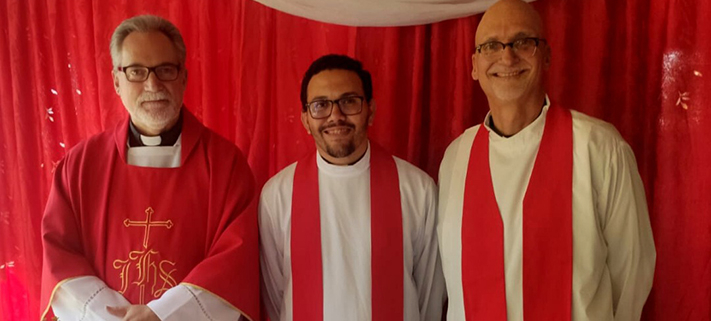
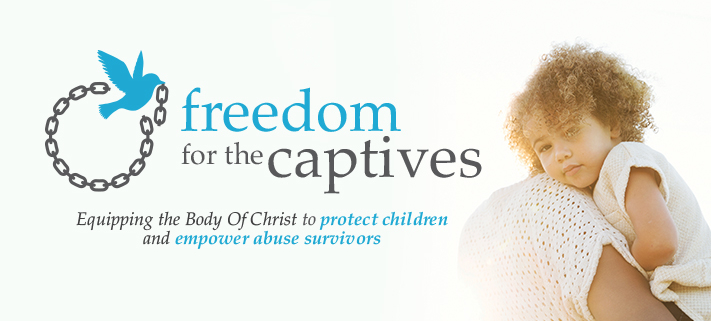

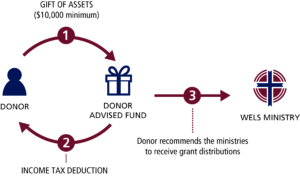



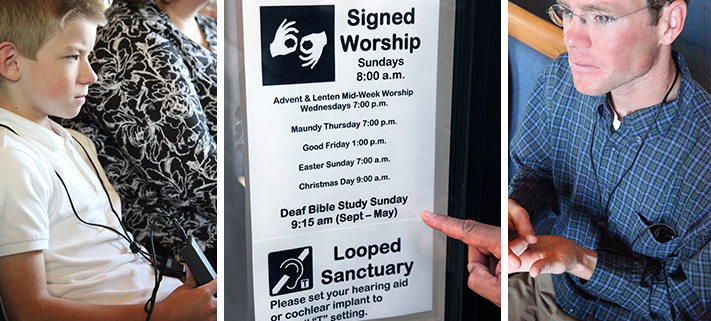
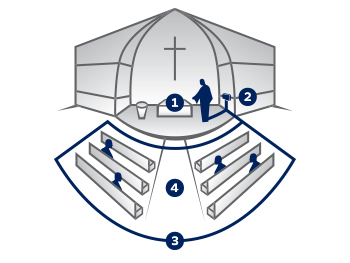 Thankfully, modern technology has solutions to alleviate this problem. One of these is to install a hearing loop in your church. A hearing loop works with people’s hearing aids to provide a clearer sound directly into their ears. Watch this
Thankfully, modern technology has solutions to alleviate this problem. One of these is to install a hearing loop in your church. A hearing loop works with people’s hearing aids to provide a clearer sound directly into their ears. Watch this 